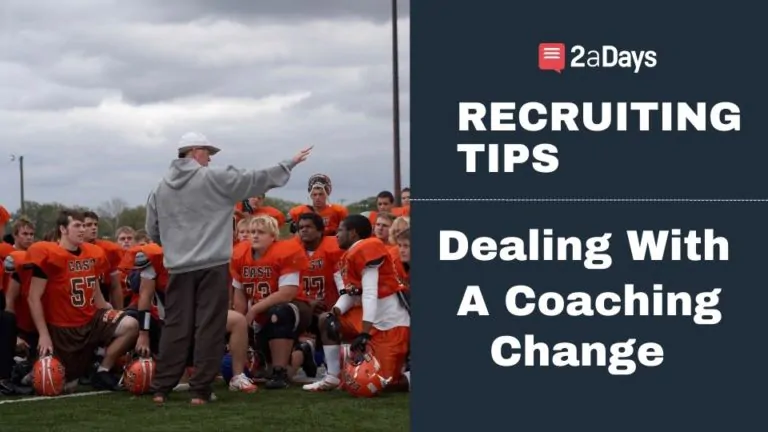Take it from someone who has been an athlete for over 16 years: life after being a college athlete is a weird experience. You have so much time on your hands with nothing to do but be alone with your thoughts. Your younger teammates may think that your life will now be a breeze, but in reality, life is extremely hard to figure out without the structure you once had. Here are 14 tips on navigating the world of a retiree or feeling like a has-been, and what to do with your newfound freedom.
1. Read Self-Care Books (or any books!)
Knowledge is power. Freshly retired athletes tend not to know who they are outside of their sport. They have been on a rigorous schedule of working out, going to school, games, practicing, study hall, resting, and repeating. Reading self-care books allows you to learn how to take care of yourself mentally and physically. Some recommendations include Atomic Habits by James Clear, You are a Badass by Jen Sincero, Get Out of Your Head by Jennie Allen, and The Mountain is You by Brianna Wiest.
Related: Self-Development Podcast for Athletes
2. Watch New TV Shows
Believe it or not, watching different shows can teach you a lot about yourself and could spark some news interests. Maybe you are watching FRIENDS one day and you realize you want to pick up the guitar and learn songs like “Smelly Cat,” just like Phoebe.
3. Journaling
Ever have those days where you are in a bad headspace and you would usually clear it by going to practice? Well, a great way to release your negative thoughts or emotions is to journal. Sometimes writing about what is going through your head helps relieve much of that stress and anxiety, and it's a good way to look at it from a new perspective. A good venting session never hurts anyone. You can learn a lot about yourself and how you truly feel about certain things in your life when you just write it out.
Related: The Mental Health Manual: Book Review
4. Pick Up a Paint Brush
If you were an athlete who used your sport to take your mind off the chaos in your life, painting and drawing might be for you. These activities allow you to be in an environment where you have nothing to do but focus on the paint, the brush, and what you want to create. It's a great distraction, and you may end up being the next Picasso.
5. Figure Out Your Workout Dos and Don'ts
After playing a sport for so long, there are two kinds of people, those who immediately can workout with no hesitation and those who have a hard time getting back in the gym. There is no reason working out should feel like a chore; find out what you like. You are not forced to run, so if you don't want to run, you don't have to. Some fun alternatives that newly retired athletes can try include jump roping, Zumba, dance classes, hiking, rock climbing, and biking. Find out what works for you. For most of us, going to practice and playing in games never felt like a workout because we chose to do it. So, find something that doesn't feel like an actual workout, but another fun activity you add to your weekly schedule.
Related: 12 Ways to Keep Fit During the Holidays
6. Continue to Your Recovery Exercises
Some lucky athletes will come out of their sports, and their bodies will have no residual damage from years of being overworked. Those that are on the other end of that spectrum will need to keep up their recovery routines. It doesn't have to be as rigorous as before, but if you still get aching pains in your ankle, knee, or back, ice and massage it. Show it some care and do some preventative exercises to make sure it's not worse off in the long run.
Related: The 6 Best Foods for Muscle Recovery
7. Travel and Explore
When you are an athlete with a rigid schedule, you never really have the chance to go on a road trip, explore nature, fly across the country, or even visit home as much as you want. Use this new free time to your advantage and experience some new, beautiful locations. Create a scrapbook of memories or just enjoy the moment.
8. Explore New Foods
As an athlete, you tend to eat the same rotation of foods you usually cook because it provided you with the right amount of energy for practice, or it wouldn't make you throw up if you ran that day, and it saved time. Now that you are no longer held by any restrictions, it's time to start discovering new dishes and learning about foods you enjoy. Who knows, you might become a foodie.
9. Join an Intramural or Pickup Team
The good news about playing a sport for so long is that it never actually leaves you. You will always be able to pick it up and play it for fun. This can be done through adult leagues, intramural teams, or even a weekly pickup game with friends. You can always continue to play even when you are no longer on a collegiate team.
Related: Rate your Coaches, Facilities and Campus Visits
10. Create a Bucket List
Being a college athlete leads to having a busy schedule. Now is the time for you to get to know yourself and figure out who you want to be. One way you can figure life out is by creating a bucket list of everything that you never got to try or had the time to experience. This can be as simple as getting a fresh piercing to something big like flying to Fiji.
11. Don't Be Too Hard on Yourself
The most important thing to remember is to not beat yourself up. You are more than your sport, and you finally have some extra freedom to do anything you want. This new journey is yours to take and discover what you want your life to be.
12. Find A Side Hustle
You can use this newfound freedom as a way to find a side hustle that you enjoy doing for some extra money in your wallet. Now is the perfect time to start that small business you always wanted (that's how 2aDays started!). This can be anything from cooking dinner plates, making baked goods, putting your old clothes up for sale, walking dogs, babysitting, making embroidered sweatshirts, driving for Uber, or becoming a virtual assistant.
13. Volunteer
Having free time as an athlete can sometimes feel like you are wasting precious time. To feel productive, you can volunteer your time at an animal shelter, soup kitchen, retirement home, school, soup kitchen, and recreational center. Similar to sports, volunteering allows you to meet multiple people you never would in your everyday life.
Related: Why You Should Do Community Service as a Team
14. Adopt A Pet
After spending multitudes of time away from your house due to traveling, you are now able to go out and adopt a pet. A new dog, cat, hamster, or even a fish can help your mental health when you are trying to find your new identity without your sport. Plus, it is always a bonus to have a friend around to vent to.
As athletes, we almost never have free time, so when you finally retire, you have all the time in the world to try out new hobbies and interests. Put yourself out there, expand your comfort levels, and be the version of yourself that you always wanted to be. Now is the time to explore, so have fun with it!
Have an idea for a story or a question you need answered? Email us at [email protected]
* Originally published on March 8, 2022, by Daesha Harper







